THEOREM Explained: A Mystical Treatise on the Essence of Life
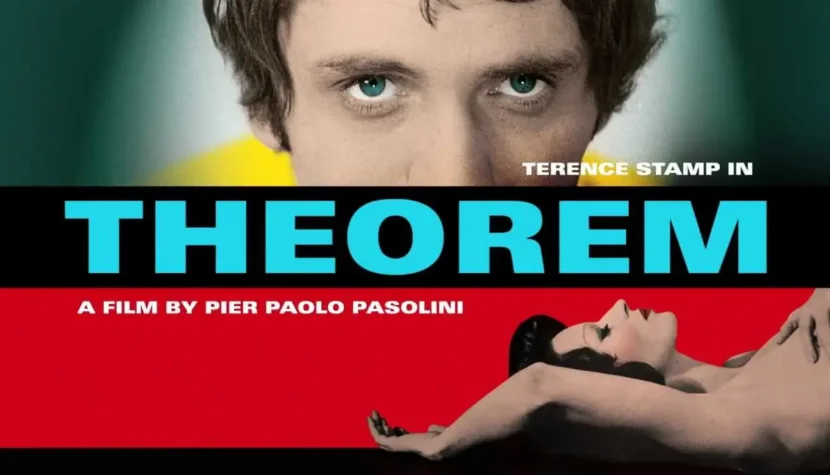
The emptiness left by God
In my view, the synthetic vision of religious experience enhances its totality, which is sometimes lost through the “processing” of defined theological systems. In the face of such a personal and all-encompassing Presence, the Void left by the inevitable departure of the Guest becomes all the more painful. The liberation from stagnation that He brought by seducing the inhabitants of the wealthy house comes with a price—an awareness that they are, in fact, wandering in the desert, and that His presence was only a fleeting glimpse in their intimate world, while the world remains as it was before. This confrontation is emphasized by Pasolini’s use of the poetics of a hostile reality, pressing upon the characters. Through this, the affluent residence turns out to be a cramped cage, the developed industrial city a soulless hell, and managing the factory—a sign of economic status and prestige—becomes a burden that hinders the attainment of self-awareness.
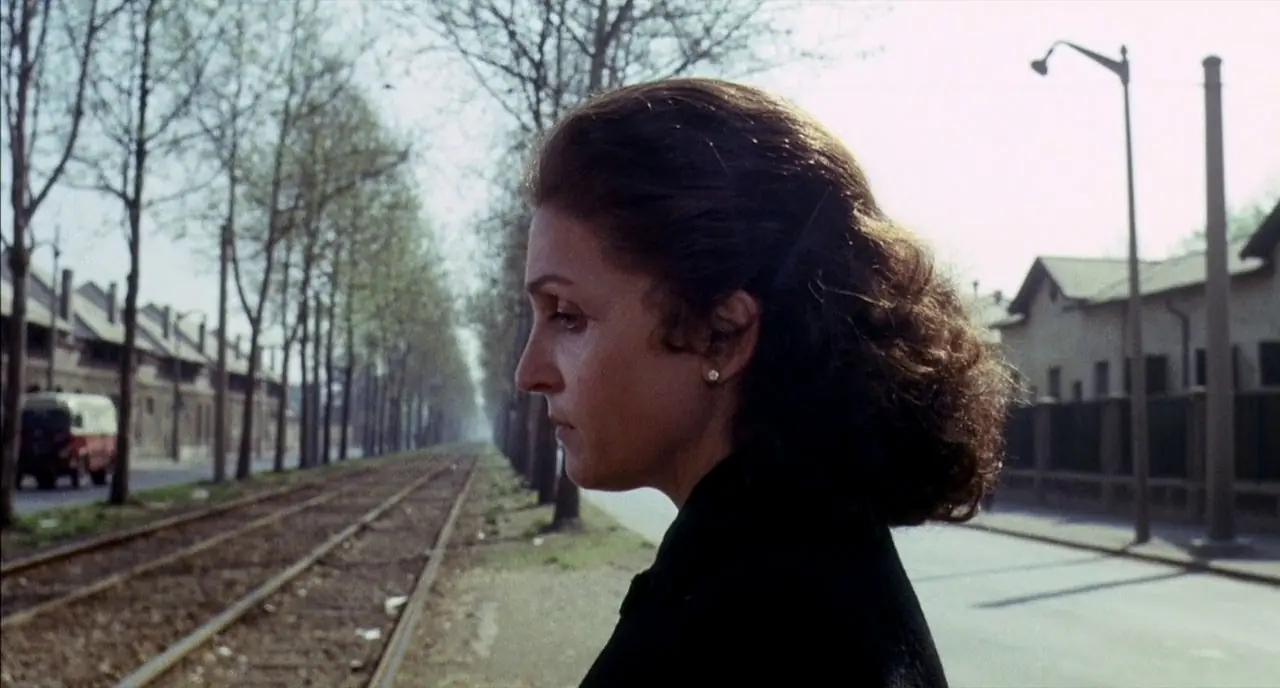
When the Guest leaves their home, the family members begin attempts to fill the Void left by His Presence. Alone, just as they experienced His blessing alone. The son, to whom the Guest revealed his inner richness and clearly showed the meaning of life, tries to fulfill himself through art. However, increasingly violent creative acts cannot mask the barrenness of his efforts. Pietro utters one of the key sentences in Theorem: We must invent new techniques (…) make our world unlike any other. (…) No one can understand that the author means nothing, that he is abnormal, inferior, that he twists and writhes like a worm to survive. The boy, whose name can be seen as a link between this character and the director, tries to create ever-new, more radical ways to mask his fear, ultimately leaving home to become an artist painting revolutionary slogans on glass. In this ironic way, Pasolini seems to expose the pursuit of creative expression by humans, which only serves to hide the fact of their loneliness and sense of abandonment by the inspiring force, revealing itself to be fragile and meaningless.
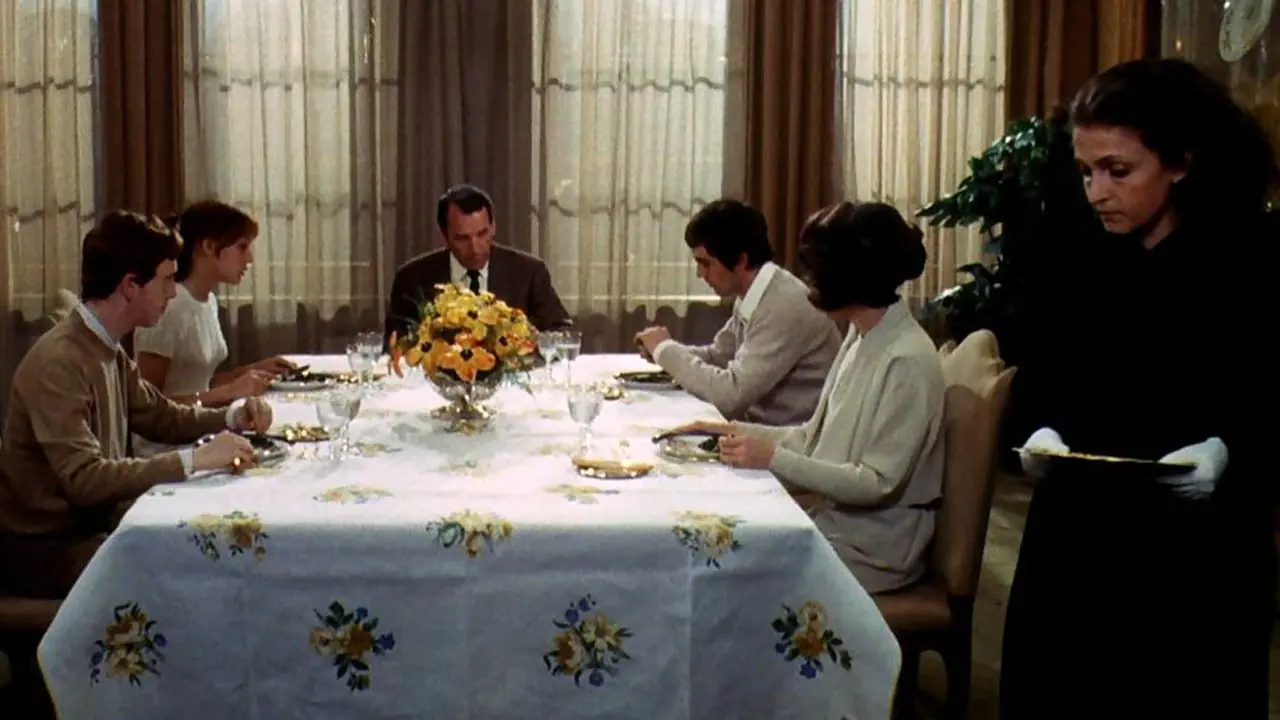
Lucia, the wife/mother, follows a similar but more nihilistic path after the Guest’s departure. Freed by Him from the golden cage that stifled her femininity, she tries to drown out the Void with the same thing He did—with sex. As a result, she plunges into debauchery, which only intensifies her loneliness and fear of the cold, soulless reality, also arousing in her an overwhelming sense of Catholic guilt. Her daughter, awakened as a conscious and mature individual, increasingly feels the pain of abandonment and the burden of the freedom given to her. Deprived of a foundation for herself, she flounders aimlessly around the house and garden, eventually sinking into catatonia, a return to her inner self, deeper behind the old veils. Odetta, the most suppressed before the visit, feels the Void most acutely, losing the sense she had briefly gained. It is telling that the struggles of the daughter and wife have a romantic-erotic tone. Odetta’s pain, trying to recreate happy moments with the Guest, has undertones of longing for a lover, while Lucia, liberated from marital oppression, ultimately loses herself in sexual self-oppression. Their examples most clearly show the ambivalence of corporeality, which can simultaneously be a means of achieving harmony and breaking stagnation, as well as a tool of destruction.
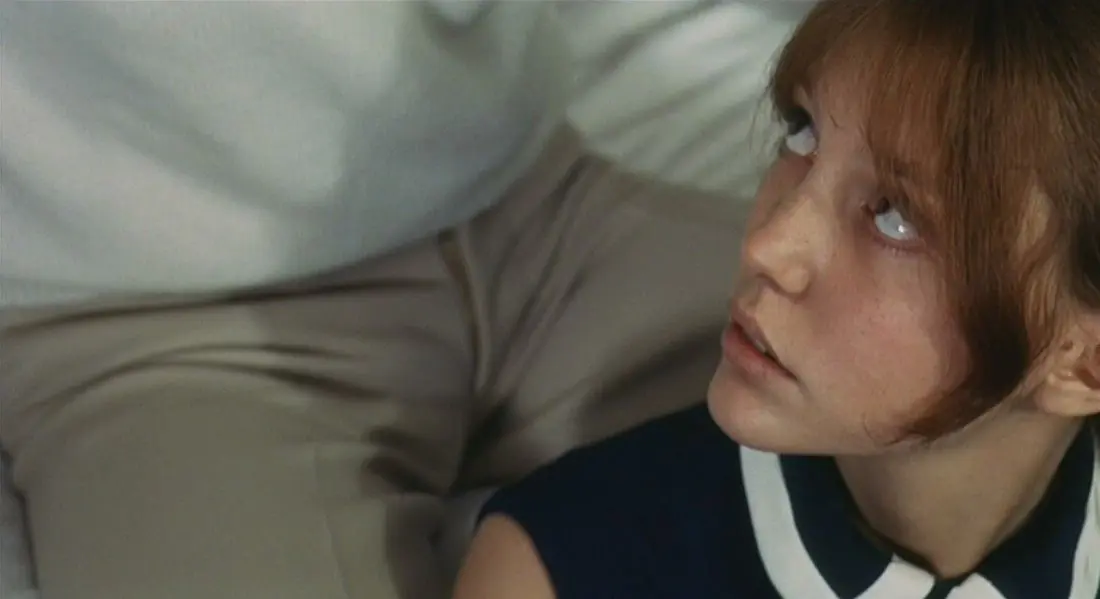
After the divine impulse, each character, in their own way, realizes what a world without spiritual inspiration is. Different strategies are adopted by Emilia, who was the first to approach the Guest, and Paolo, who was His last lover. Both follow a prophetic-mystical path, clearly seeking an escape from a world dominated by materialism. The housekeeper Emilia leaves the family shortly after the Guest’s departure and returns to her native village, where she begins a silent life as a mystic. A representative of the lower social class, she processes the divine experience based on traditional, folk faith, which gives her the strength to perform miracles—healing a child afflicted with a kind of leprosy with a glance, and in one of the most memorable scenes of the film, levitating above a building. In an act of fervor and historical mission, she eventually allows herself to be buried alive at a construction site. This act, a religious transformation of her earlier suicidal tendencies, may be an attempt to “fertilize” the spiritual future world, as well as an expression of helplessness in the face of a society that does not understand the essence of her transformation. The culmination of her storyline is the tears of happiness visible at sunset during the burial—their meaning, however, remains ambiguous, and the significance of the sacrifice undefined. Emilia’s martyrdom, though it may give hope for a better tomorrow, more likely seems to be a symbolic act of burying ancient, authentic, and primordial spirituality and faith by modern technocratic society.
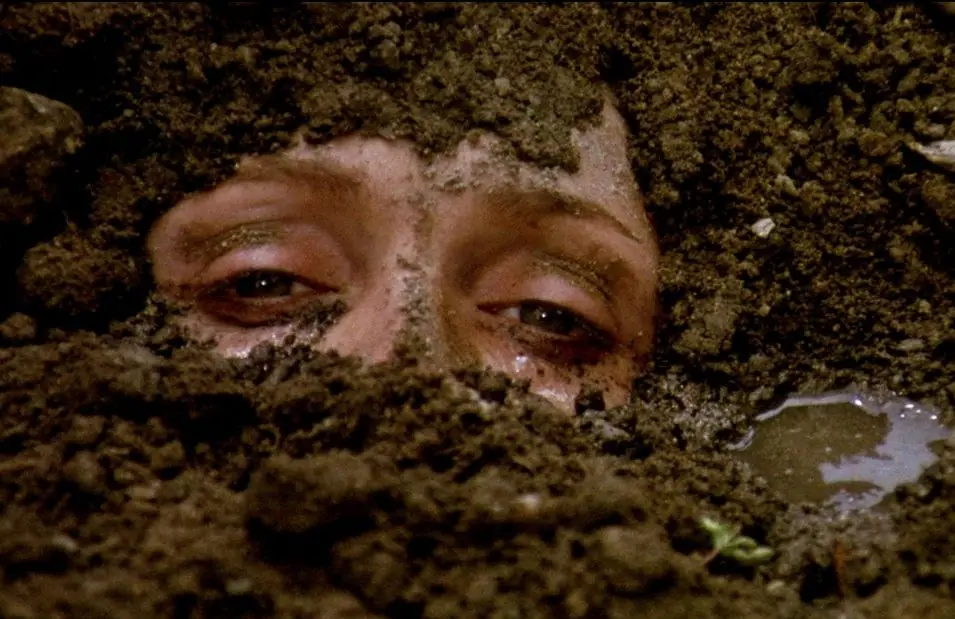
Just as the head of the family was the last person to fall into the Guest’s embrace, his portrait ends the film. Paolo, who earlier accused God of cruelty and a will to destroy, sinks even further into doubts and confusion, which the Presence was supposed to alleviate. For the father, whose name perhaps not coincidentally matches that of the director, awareness is a curse, and the encounter with the Guest is a burden. Realizing that his life is, in fact, a barren desert, in a hermit-like gesture, he renounces control over the factory, which he hands over to the workers (we watched comments on this decision in the prologue) and sets off, naked—literally and spiritually—into the volcanic desert of Etna, which finally appears in its full glory. Is he trying to meet God there again? Whatever he is looking for, he does not find it, and realizing that God had indeed led him into the desert, he lets out a desperate scream. A scream that is simultaneously the scream of all divine orphans, exposed by the religious experience and confronted dispassionately with a secularized reality.
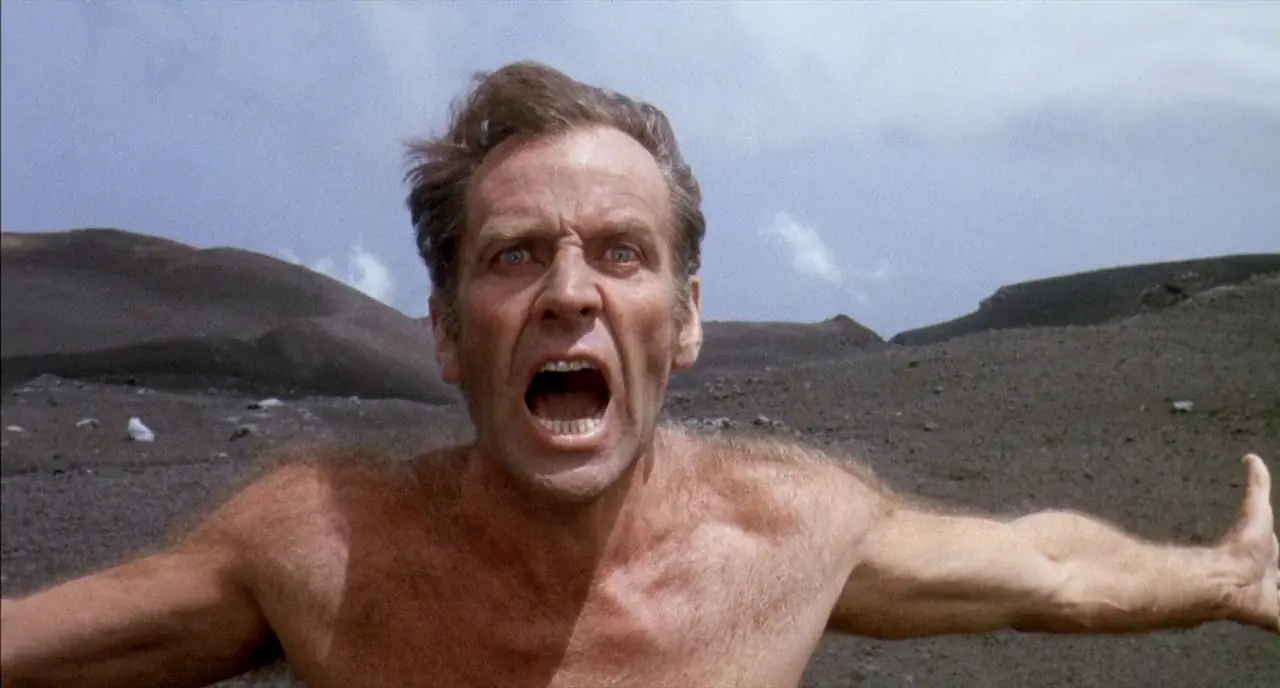
The curse of freedom
In the final act of Theorem, Pasolini’s socialist-Marxist inclinations are subtly revealed. The sequence featuring the workers at the beginning of the film is not accidental. As they comment on their boss’s decision to hand over the factory, the workers, representatives of the working class, are lost, doubting their future. They hide their fear and sense of abandonment behind clichés about the bourgeoisie’s detachment from their problems and the impossibility of cross-class understanding. On the surface, this establishes a narrative perspective as a critique of the emptiness of the lives of the economic elite, illustrated by the story of the factory owner’s family. However, the stories of the five characters seduced by the Visitor suggest something else. After the divine impulse, each character realizes in their own way what the world is like without spiritual inspiration and struggles with the consequences of their naive trust in God’s protection. As a result, they experience what can be described as the “curse of freedom,” losing themselves in a sense of meaninglessness brought about by their awakening and abandonment without spiritual guidance. The “orphaned” workers, condemned to self-determination, seem to show the same symptoms.
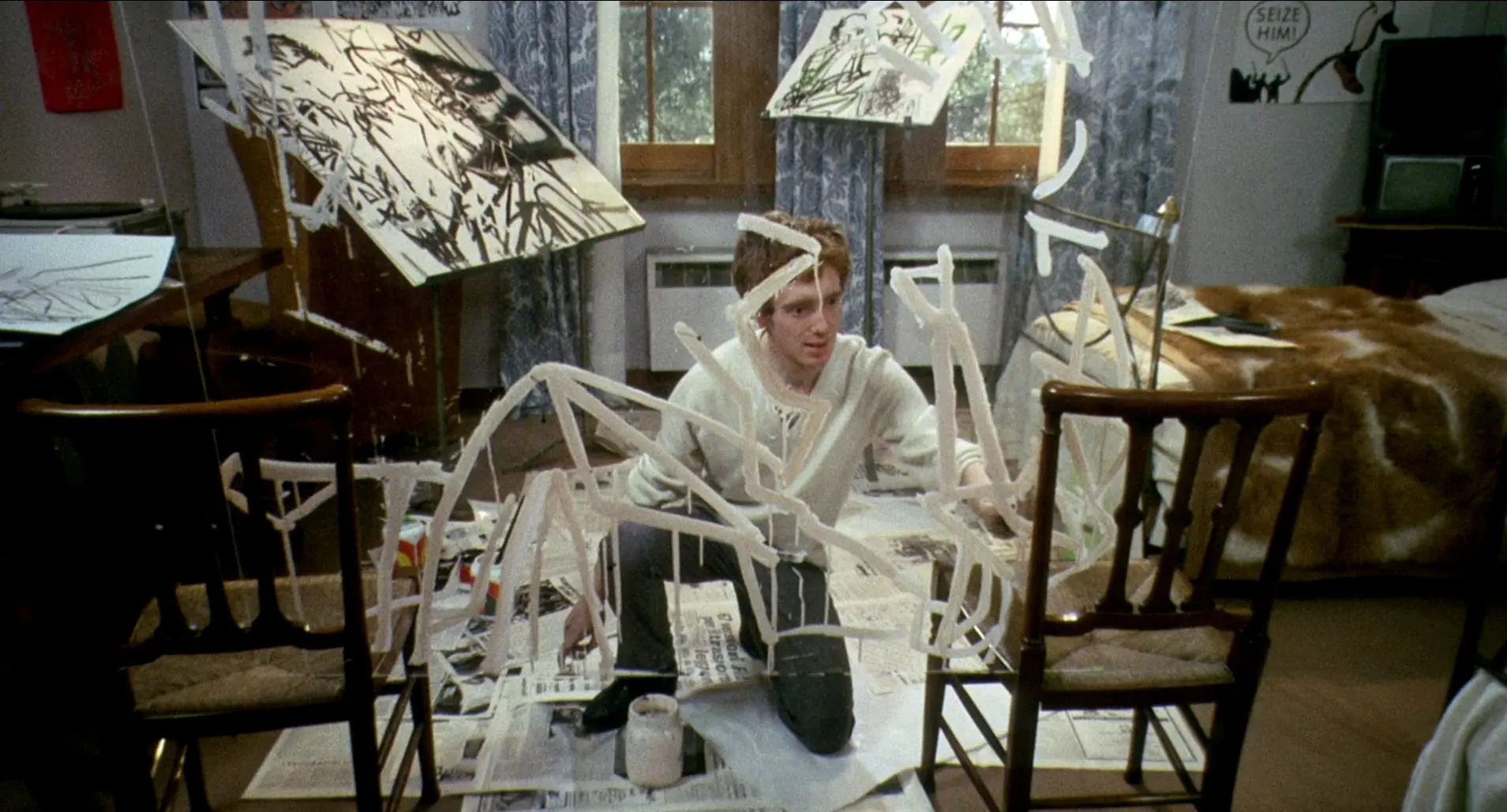
Pasolini’s metaphysical drama thus simultaneously criticizes modern society, which condemns authentic, intuitive spirituality to be buried, and distances itself from the ideas of proletarian revolution. The economic dominance of the bourgeoisie, in his eyes, seems to be just another dogma, the loss of which causes anger and fear, much like the family’s misplaced trust in God as a protector. Basing one’s identity on a system ultimately leads to painful disorientation when its foundation disappears. In this light, the titular theorem can be interpreted as a sign of the fatalism of human actions based on the functioning of a religious or social system. The film’s critique is not aimed at any particular class but rather at the civilizational tendency to create dogmatic systems that close people off from primal spiritual forces, the confrontation with which ultimately leads to their exposure and loss. At this point, it does not matter whether the Visitor is God, Satan, or simply a charismatic cousin—he embodies all those forces that people, by trusting in various systems and ideologies, close themselves off to, simultaneously making themselves vulnerable to their sometimes disastrous influence. The film about his visit, in turn, highlights the deceptiveness of doctrines and systems. In this way, Theorem is both a metaphysical treatise on faith and a parabolic social allegory.
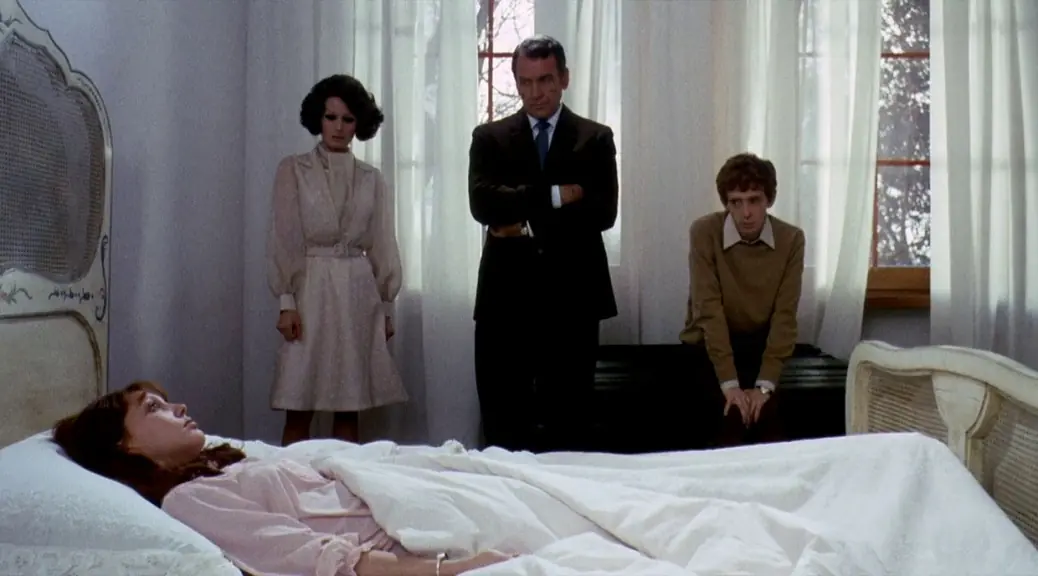
In the same year as the film, Pasolini—besides being a filmmaker, also a writer—published a novel with the same title. I haven’t read the book, but available information suggests it is content-wise consistent with the film. The fact that Pasolini told the same story simultaneously in both literature and film seems to indicate the significant importance he attached to the vision proposed in Theorem. In it, the Italian created a kind of intimate exposition of his understanding of spirituality and the nature of the contemporary world, demonstrating his intellectual and cinematic genius. It is also a narrative in which Pasolini perhaps most perfectly combined the most important, seemingly contradictory themes in his work: humanistic mysticism, social engagement, and provocative perversity, which intertwine into an extraordinary, mystical treatise on the essence of faith, the void of existence, and the cultural constructs that surround them. Amen.

